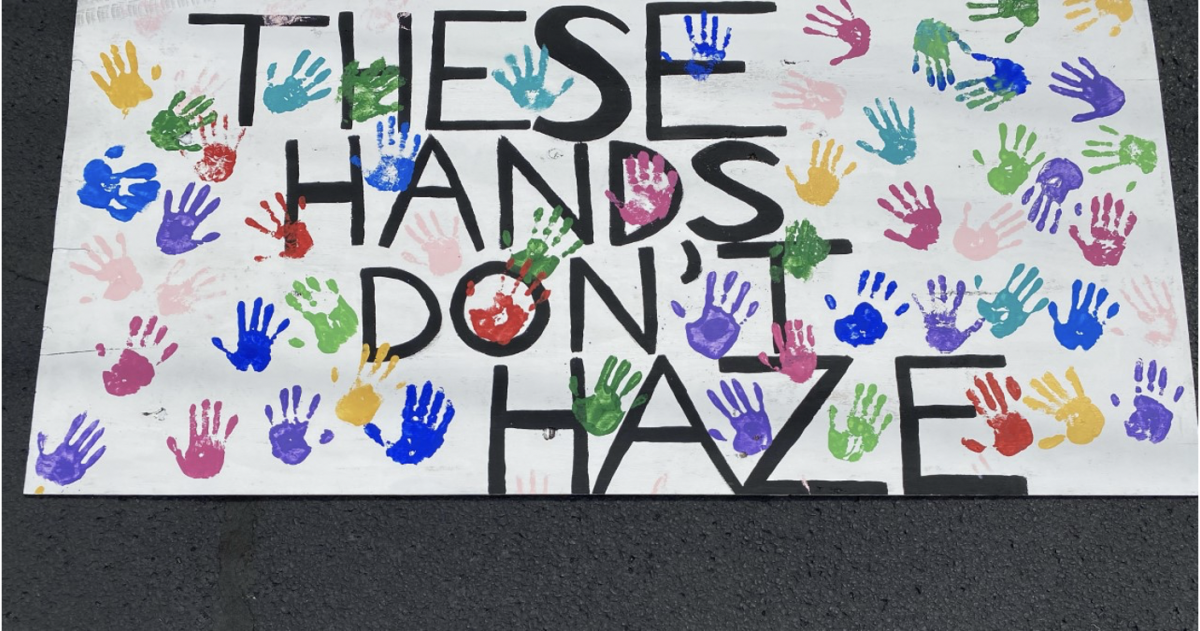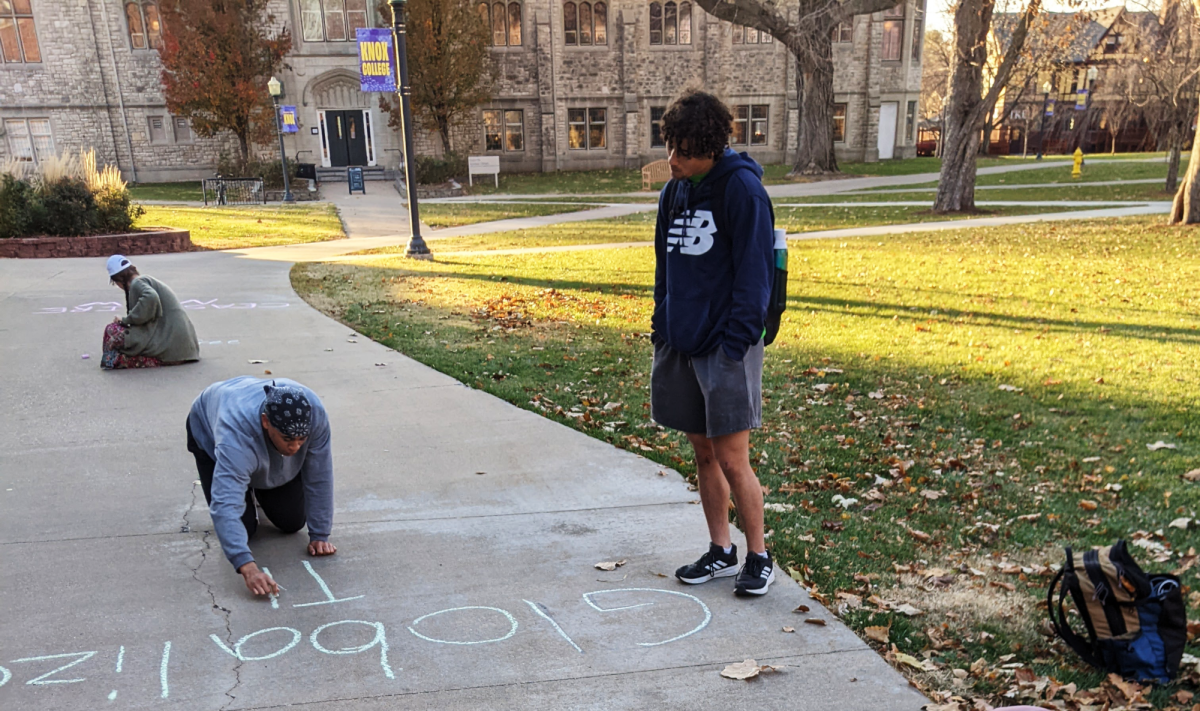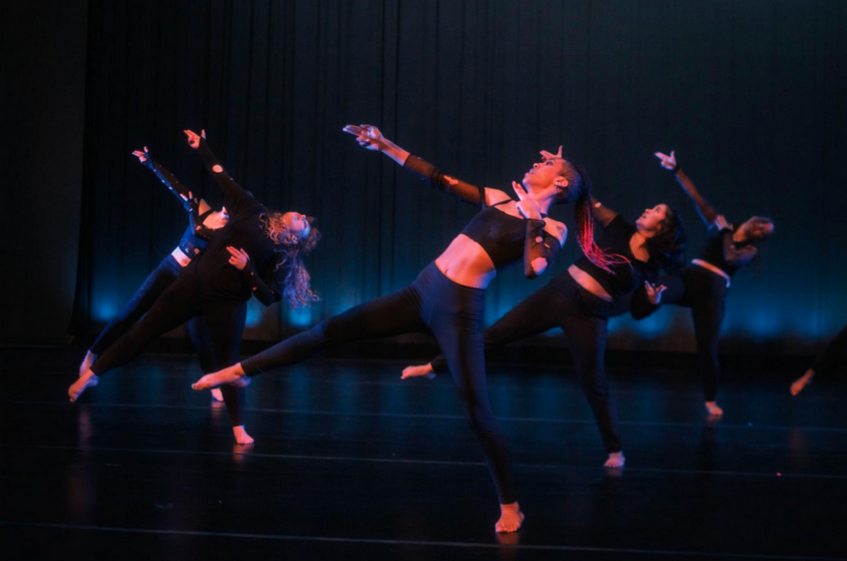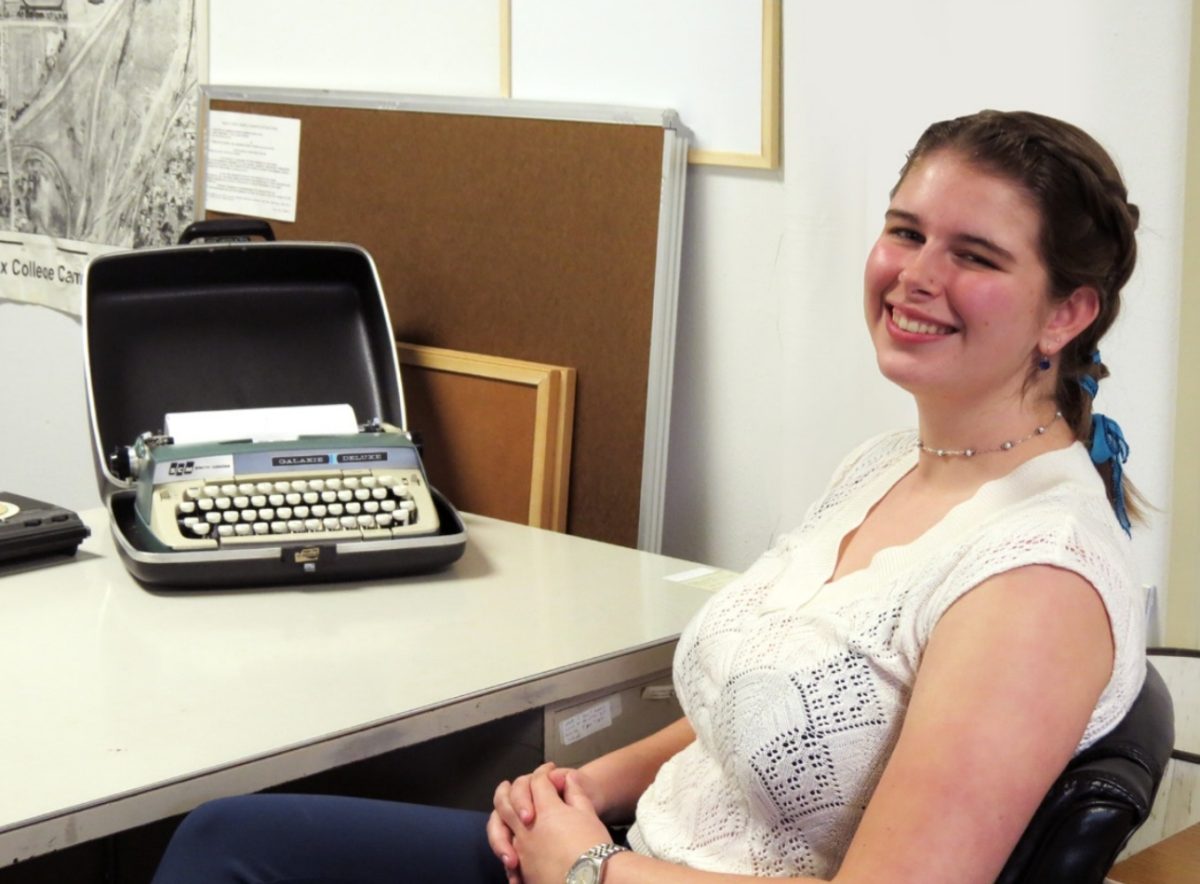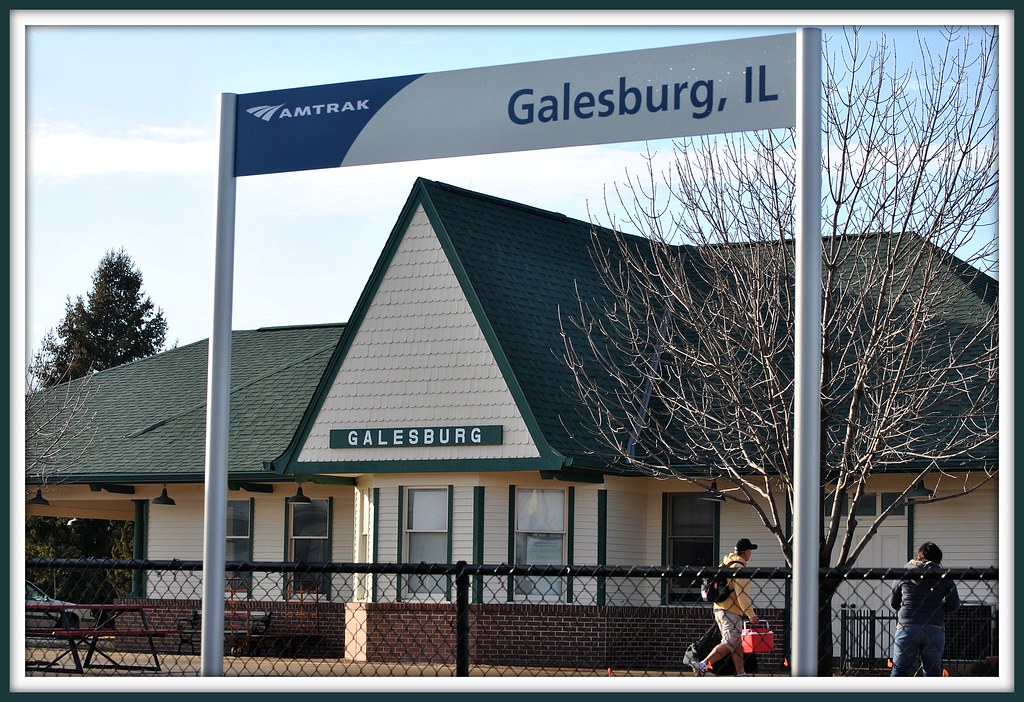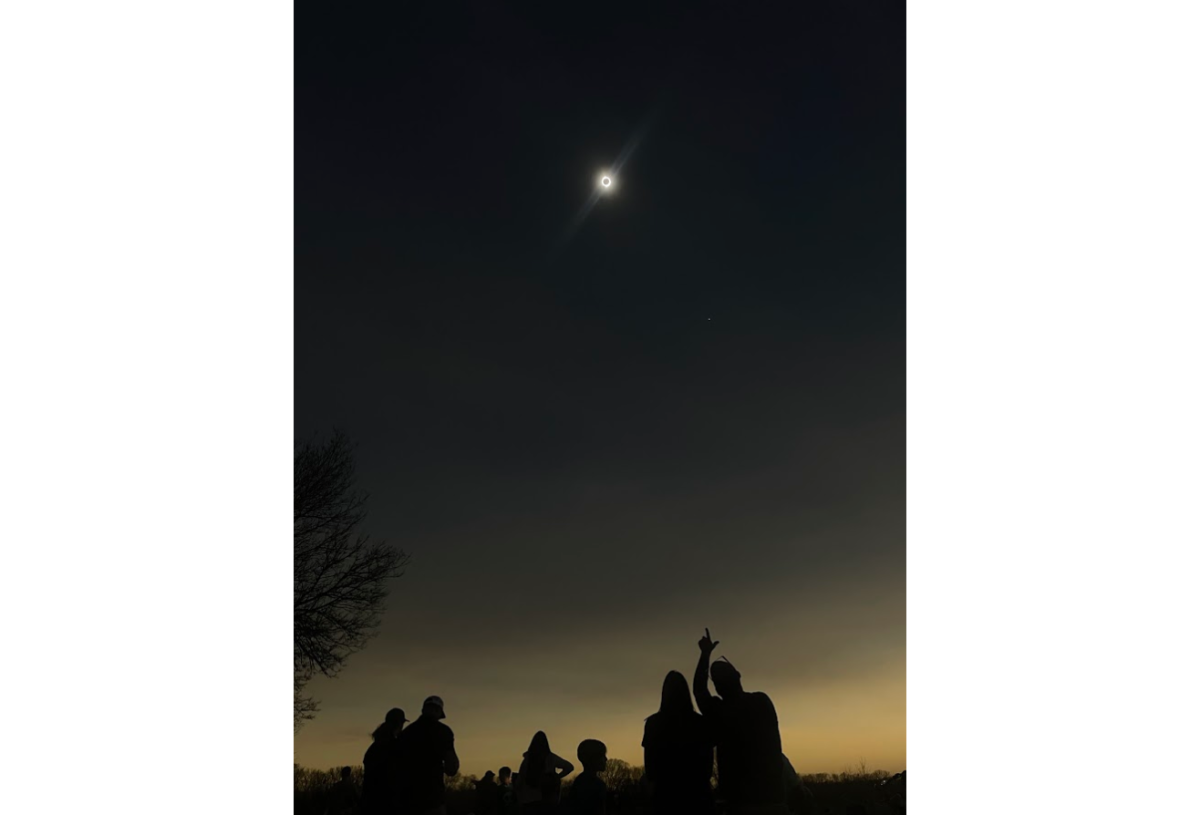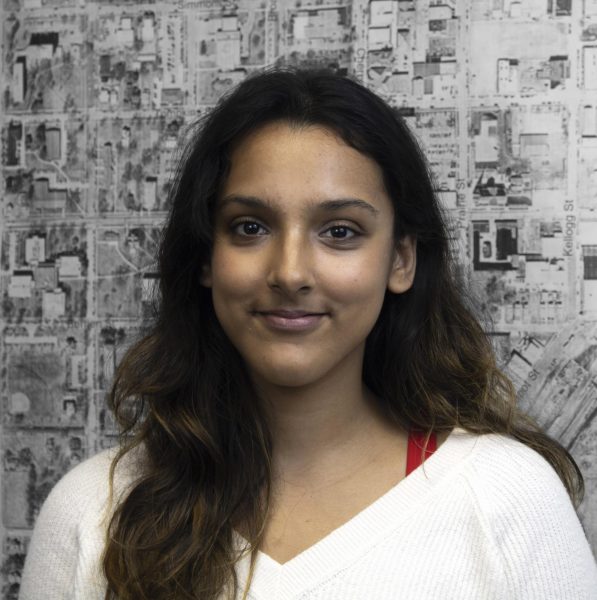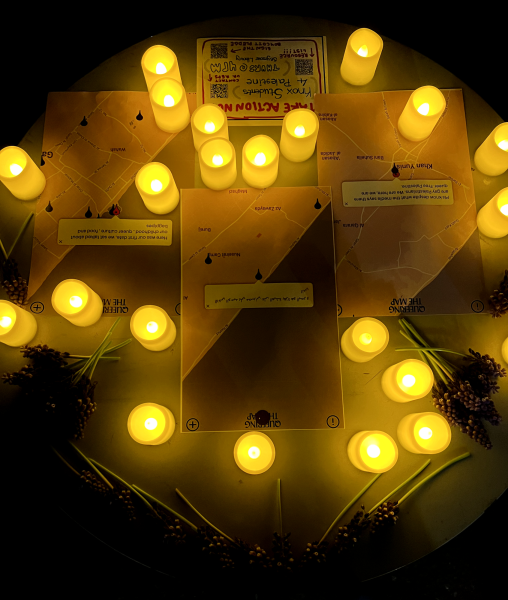
It was the 25th night and the last Friday of Ramadan, known as Jumma tul wida, which means the Friday of goodbye. It is an auspicious day in Islamic tradition, which has bittersweet undertones, as Muslims around the world experience the sadness of Ramadan ending, while also being happy about the blessings of the day.
It was on this special day that I saw littles specks of golden light appear outside Alumni at the Plomin Terrace on a dark and moderately cold midwestern evening: Common Ground had organized a vigil for the lives lost in Palestine, and a group of about 30 students had gathered to honor those lost in the violent genocide of the Palestinian people.
The vigil started with moments of silence as people held a candle, looked down in reverence and held a picture of a Palestinian who had been killed in the genocide. After a few moments, I was asked to speak about funeral or death rites in Islam and I recited the prayer Inna lillahi wa inna ilaihi rajiun- to God we belong, and to Him we return, and remembered the people of Al-Shifa who had hoped to unite with their loved ones in an afterlife better than the present. In that moment, the prayer and the group of students gathered to experience it offered me infinite hope and reassurance.
The vigil was held on April 5, and marked the end of the Week of Action, organized by the Knox Students for Palestine (KS4P), an unofficial student organization that sprang up after violence intensified on October 7th.
“I sent a message in the Slack that nobody had touched since last Spring during the TKE protest, but I also don’t want to claim [starting the organization, Knox Students for Palestine] because it seems weird,” said fifth-year Izzy Scott.
Scott felt the need to send that message over Winter break because they felt certain that other students were also feeling enraged or bothered by the situation in Palestine, and it was easier to act together than to act alone.
The vigil followed a series of events between April 1st and April 5th, organized by various organizations around campus, in collaboration with KS4P, such as a zine making hour with Knox Students for Sustainability to learn about Palestinian Plants, a discussion of the Palestinian diaspora in Chile, and a discussion of boycott, divestment and sanctions delivered by Dr. Dov Baum an activist from Israel but living in the US.
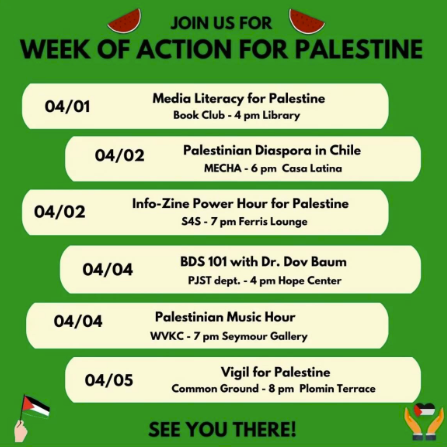
“The talk with Dr. Baum was very helpful in considering our next steps that way. I don’t think we can get to the point of divestment unless more people understand the point of it and what it is we are trying to do,” said Scott.
Several members of the KS4P like Scott are fifth-year students or are planning to take a fifth-year, such as Marli Messner. Reflecting on their time at Knox, Messner acknowledges that KS4P has brought about significant change on campus by tackling a culture of apathy, where people say they want to take action but fail to act on their claims.
“It is really good to see that people aren’t just saying that they care but actually showing up and doing what they can. I have seen a lot of faces in events this week that I have not seen before and it is really heartwarming to see,” Messner said.
At the Music hour organized by WVKC, the radio station on campus, Messner emphasized the importance of celebrating Palestinian art, which was also a goal of the Week of Action.
“We are seeing a lot of images of violence and destruction right now, but it’s also worth spreading the culture and the art the oppressed people are making. People are more than their oppression. They are all the work they do and all the things they say and so it seemed worth spreading that. It’s work that people otherwise would not even think to seek out,” Messner said.
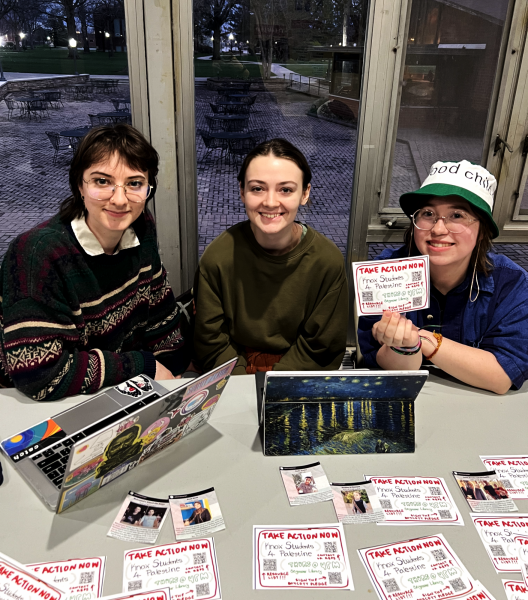
There was also an emphasis on carefully considering the sources of information to better understand the violence in Palestine during the week, which was seen at Book Club’s media literacy event. The presentation at the event included explanations about how to interact with media sources and learn about the violence in Palestine, and the main goal of the event was to educate everyone about the connection between media sources we consume and systems of oppression. Scott highlights the importance of continuing to learn about the genocide of the Palestinian people
“We just need to keep talking and keep educating others and ourselves as we keep doing this work. I am not Palestinian. I am a white American, white European American, so there is so much that I don’t know and in a struggle like this it is important we have this information. The truth is powerful,” said Scott.
After the vigil that marked the end of the week, junior Ezren Herzog, identifying as a person of Jewish descent, expressed his gratitude for people who showed up and demonstrated their support for the cause of KS4P.
“It was a very somber event. I just feel like we as people have the responsibility that when atrocities like this continue to happen, we do something. I am so disappointed and horrified by the excuses that people make and dance around the fact that 40,000 people are dead within six months, which should have never ever happened. I am very proud of this group and I hope a ceasefire is on its way,” Herzog said.
Regardless of the somber tone of the event, KS4P members appeared determined to continue to act until the Palestinian cause strengthens on campus and concrete action is taken to advocate for a ceasefire. While acknowledging that their actions such as boycotts or even organizing events such as the vigil are small efforts, they hoped to inspire more people to join the cause.
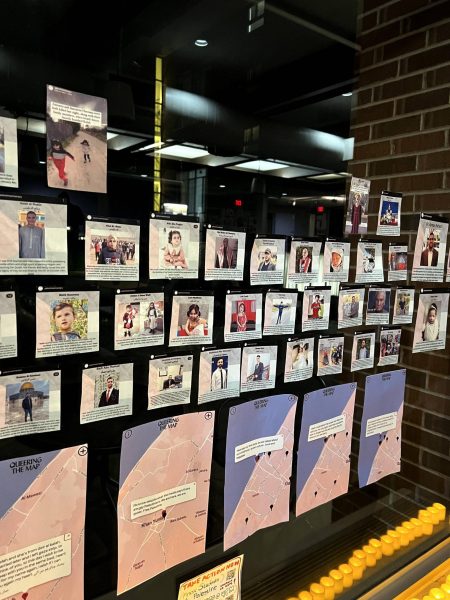
“I hope people reading this article, seeing the posters and calling their representatives and pushing for a ceasefire know that there is support and we can do more. We are going to keep holding meetings, keep holding events and encouraging people to take action. I would like to go to a higher level. I would like to go to Chicago and more capitals where more people can see that we can do more,” organizer of the event, senior Sage Eisenhart said.
At the end of the vigil, KS4P and Common Ground members took pictures with names and descriptions of the people killed in Palestine to Post Lobby to create a memorial for campus to see and revere.
“I hope that we are still able to take comfort in the fact that we are doing something and that we are trying and I hope history will remember us kindly for having the humanity to at least do something about it,” said Scott.

